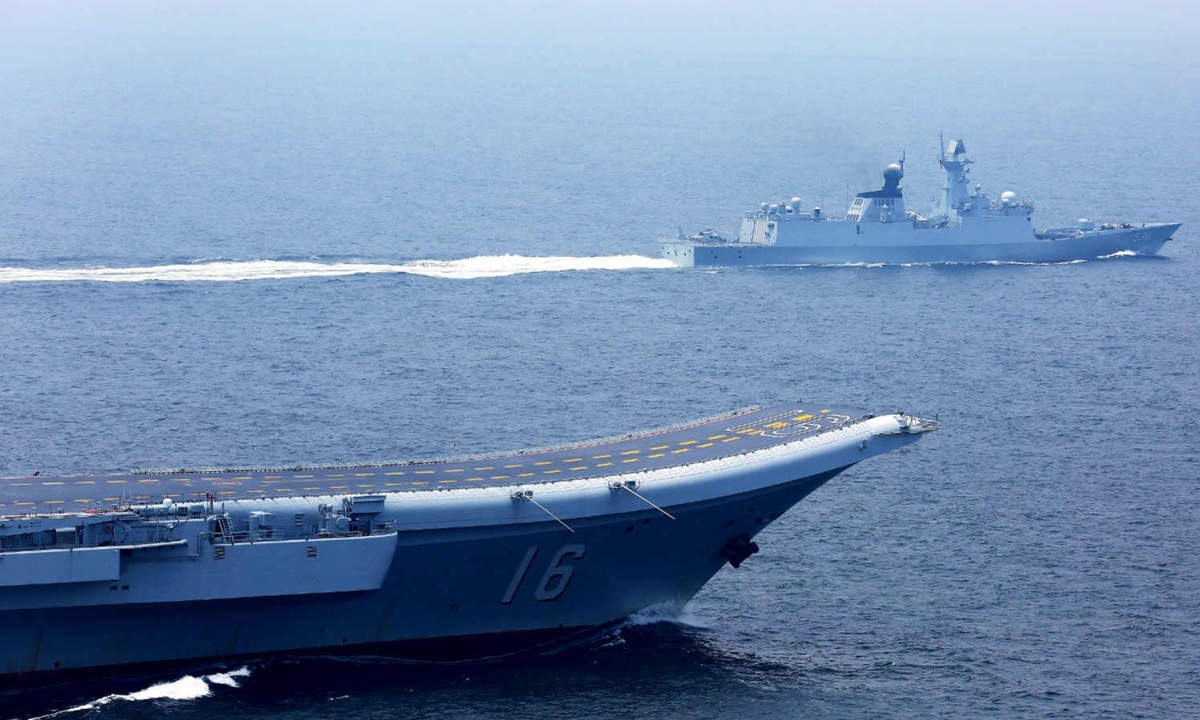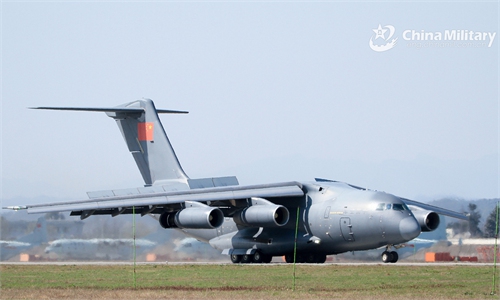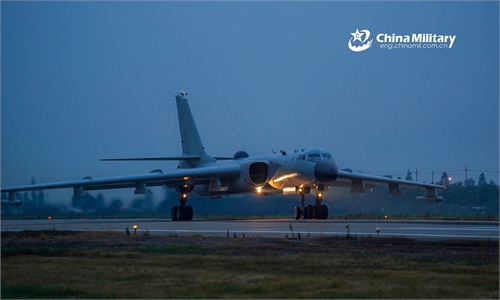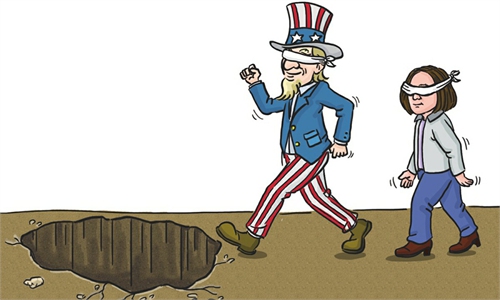China not ‘10 feet tall,’ but US shorter in Taiwan Straits: Global Times editorial

Vessels in the Taiwan Straits, July 20, 2017. /CGTN Photo
When US Defense Secretary Lloyd Austin spoke to the Reagan National Defense Forum at the Reagan Library in California on Saturday, he focused on US military policy on China. He noted that recent extensive Chinese military operations in the vicinity of the Taiwan Straits resembled "rehearsals [of a future attack on Taiwan]" and reaffirmed Washington's strong support for "Taiwan's ability to defend itself."One day earlier, US Secretary of State Anthony Blinken threatened that any move by China to "invade" Taiwan island would have "terrible consequences." Austin revealed that the Pentagon is developing next year's National Defense Strategy which is undergirded by the concept of "integrated deterrence," the two most critical elements of which are strengthening alliance and partnership and boosting military and technological innovation.
The China policy of the Biden administration is essentially clear right now: Using all means to contain China's rise and force China to accept such containment as an important part of the "international rules" so as to avoid a China-US conflict by a unilateral concession of China. Blinken and Austin have recently been explaining this US policy in terms of both diplomacy and national defense.
Washington has been using its influence and discourse to confuse the public by turning basic facts upside down, making it appear that a "confident and authoritarian" China is constantly "challenging" the US, while it is the US that repeatedly suppresses China. The Taiwan question is purely an internal affair of China while the one-China principle is universally recognized. However, Taiwan's Democratic Progressive Party (DPP) authority has abandoned this consensus and become increasingly rampant on "Taiwan independence."
On the one hand, the US side is encouraging the destructive movement of Taiwan secessionist forces, while on the other, it accuses the Chinese mainland's military actions aimed at upholding the one-China principle as an attempt to "unilaterally change the status quo." It is not strange that Beijing is increasingly skeptical of Washington's sincerity in improving China-US relations.
Many Chinese strategic scholars believe that Austin's and Blinken's tough pronouncements on China will be regular and recurring because they need to encourage allies such as Australia to charge ahead on the tough line against China and leave them no way to retreat, regardless of whether China and the US take actual de-escalation actions to implement the spirit of the virtual meeting between the heads of the two countries in November. Even if the US makes tactical adjustments according to its own pace, it does not want its allies to move the same way, which is why Washington has to maintain the general atmosphere of China-US confrontation.
China can clearly tell the US that it has no intention to challenge the US' position on the international stage, nor will it engage in an arms race or ideological and other forms of confrontations with the US aiming at hegemony. But at the same time, we need to make it clear to the US and its allies that China will never compromise on its core interests, and that any hegemonic projection by the US in China's neighborhood to suppress the Asian giant will be firmly resisted.
This applies particularly to the Taiwan question, the deep redline of China. Taiwan "independence" is bound to trigger a war. The island of Taiwan and the US must get themselves ready to undertake military responses from the Chinese mainland if they risk crossing this redline. The general trend of China's reunification is unstoppable - anyone who plans to hinder the process should use their troops' dead bodies as the blockade. If the Taiwan authority attempts to use force to seek "independence" and reject reunification, it will end up being wiped out.
Indeed, China's military strength has greatly grown in the last 20 years and will continue its rapid development. But we will not regard these military forces as leverage to coerce any other country. Though China has some territorial disputes with some neighboring countries, the solution should be carried out in ways normally used to address disputes. Our military power will be used to protect China's right to development from being deprived of or destroyed by the US, and to achieve national reunification in accordance with the will of all the Chinese people without interference by the US. If the US and its allies dare to militarily intervene in the Taiwan question, China's full military means and resolution to engage in a just war will be waiting for them in the Taiwan Straits.
Austin said on Saturday that "China is not 10 feet tall," while "America is a Pacific power." Frankly, China may not be that tall and strong, especially when it is in the deep Pacific Ocean, Indian Ocean, or the Caribbean Sea. But we are going to measure who is "taller" in the Taiwan Straits, where we are sure to show the US that in some parts of the world where it is not supposed to be, the US really is a dwarf.



